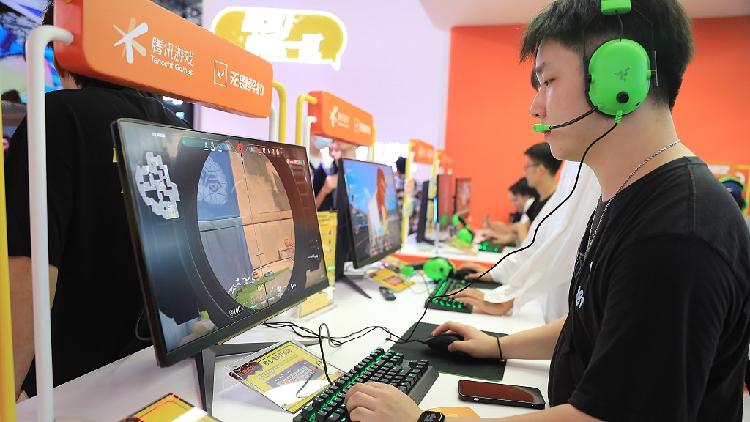Gamers try out games at ChinaJoy in Shanghai, July 28, 2023. /CFP
Gamers try out games at ChinaJoy in Shanghai, July 28, 2023. /CFP
China’s gaming industry is facing new regulations as the authorities seek to promote healthy development of the sector.
The National Press and Publication Administration (NPPA) released a draft of new regulations on online gaming on Friday, seeking public feedback by January 22, 2024. The draft includes a number of measures aimed at curbing gaming addiction and excessive spending.
The release of the draft regulations has caused a sell-off in gaming stocks in China. Tencent, the world’s largest gaming company, fell 12.3 percent in Hong Kong on Friday. NetEase, another major Chinese gaming company, sank 24.6 percent on the day.
The draft proposed to prohibit online games from offering daily login rewards, first-time recharge rewards, and consecutive recharge rewards. It would also prohibit game publishers from facilitating or tolerating high-priced trading of virtual items.
The NPPA said that it would carefully study the draft and make further revisions based on public feedback.
NetEase said in a statement that the draft regulations would not have a fundamental impact on its business. The company said it would actively participate in the public opinion process.
Tencent, meanwhile, said the draft regulations will not fundamentally impact the key elements of a game’s commercial model or operating rhythm. The company also said the NPPA’s release of the new regulations showed its support for the industry, particularly for the area of high-quality original games.
In 2023, the domestic gaming market generated actual sales revenue of 302.9 billion yuan ($42.7 billion), a record high. The number of gamers in China reached 668 million for the year, according to an industry report led by the NPPA.
Given the growing gaming industry in China, the NPPA said that the new regulations are aimed at promoting the healthy development of the gaming industry and protecting the interests of minors.




